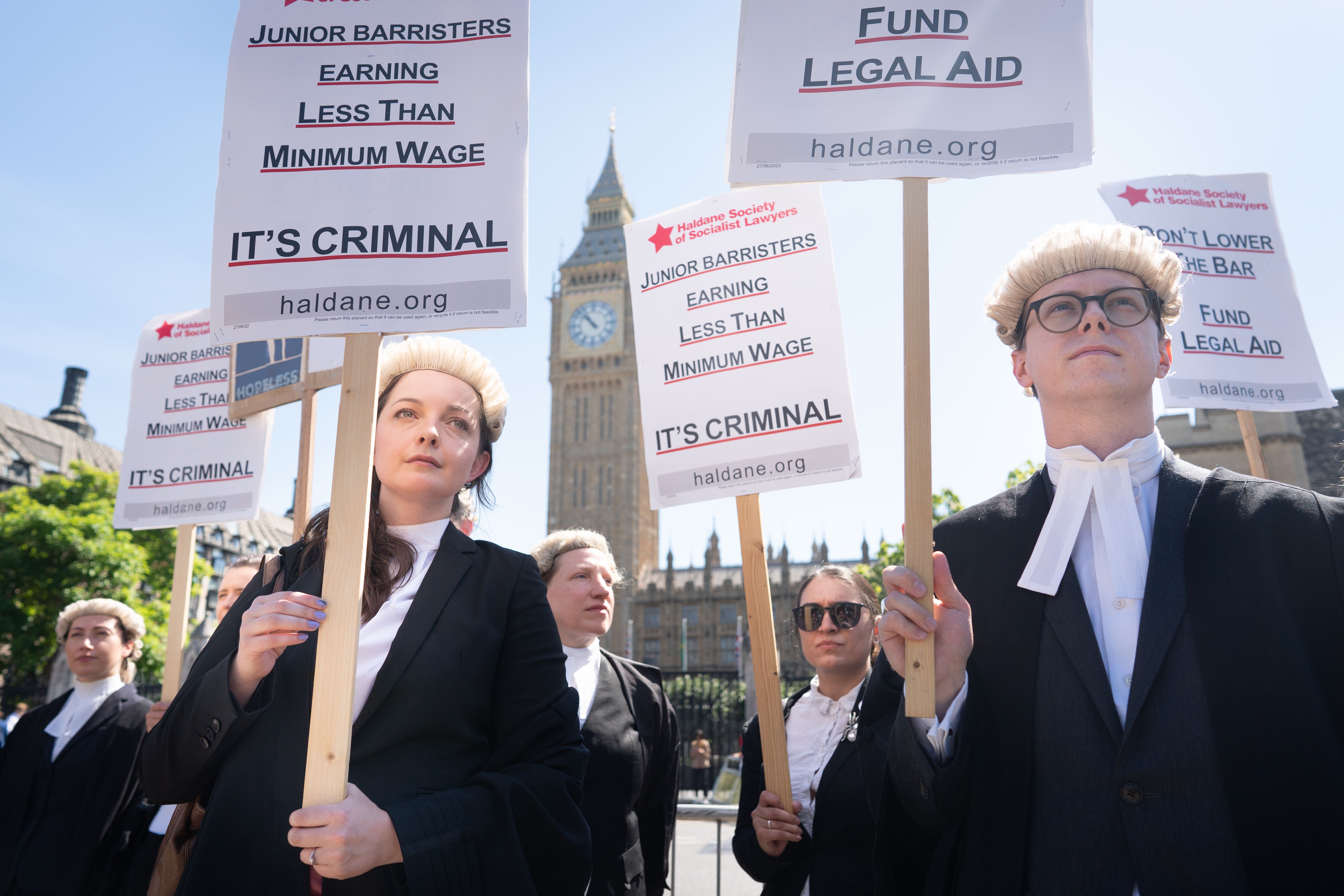Barristers to vote next week on whether to end strike action
A ballot for Criminal Bar Association members is due to open on Tuesday and close on Sunday.

Barristers will be asked to vote next week on whether to end strike action after a pay offer from the Government.
A ballot for Criminal Bar Association (CBA) members is due to open on Tuesday and close on Sunday, a spokesman said.
A decision will be announced on Monday October 10.
The body agreed to ballot members again after talks with new Justice Secretary Brandon Lewis in which he decided to propose further reforms to Government-set fees for legal aid advocacy work, the Ministry of Justice (MoJ) said.
The offer represents “further investment of £54 million in the criminal bar and solicitors”, according to the department.
Criminal barristers in England and Wales are taking part in a continuous walkout after their row with the Government over fees and conditions intensified.
Prior to that, they were striking on alternate weeks and refused to carry out certain types of work.
There had been anger that a planned 15% fee rise barristers are due to receive from the end of September – meaning they will earn £7,000 more per year – would only apply to new cases and not those already sitting in a backlog waiting to be dealt with by the courts.
But now the MoJ has said the fee increase will apply to the “vast majority of cases currently in the crown court” as well as provide a pay rise for solicitors, with further measures due to be announced in the coming weeks.
This is despite the department previously saying it had “repeatedly explained” to the CBA that backdating pay would require a “fundamental change” in how fees are paid, adding: “That reform would cost a disproportionate amount of taxpayers’ money and would take longer to implement, meaning barristers would have to wait longer for payment.”
It is understood the move requires changes to the digital system used by the Legal Aid Agency to make payments and, while officials are confident there is a solution available, they fear it may be difficult and expensive.
The pay offer came after High Court judges ruled that delays to criminal trials affected by the ongoing strike may not be a good enough reason to keep defendants in custody on remand if the dispute continues beyond the end of November.
There were fears the proposed deal could also prompt a walkout by solicitors after the Law Society of England and Wales branded it “short-sighted” and warned the criminal justice system will “collapse” unless the Government funds all parts equally.
The body representing solicitors said it was considering advising members not to undertake criminal defence work and would meet with ministers “urgently”.
President Stephanie Boyce has since said: “We will continue to push for a fair deal for solicitors for the crucially important work they carry out”, adding: “We will insist on further urgent discussions next week.”
Bookmark popover
Removed from bookmarks